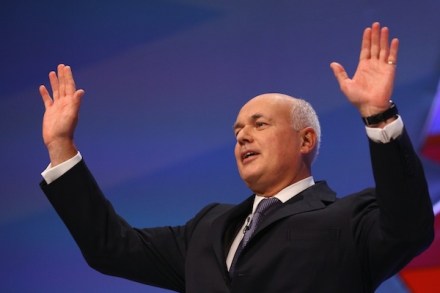Labour uses Cameron’s ‘butch’ line as PMQs weapon
Today’s PMQs will not live long in the memory. The Hillsborough statement will, rightly, eclipse it. There were, though, some things worth noting from it. Labour clearly believes that they can paint Cameron as some kind of chauvinist. Chris Bryant got the ball rolling, sneering ‘I know the Prime Minister thinks of himself as butch.’ During the leader’s exchanges, Ed Miliband responded to Cameron mocking predistribution—Miliband’s new policy idea—by calling it a ‘very butch answer’ and Cameron ‘Mr Butch.’ Finally, the Labour MP Ann McKechin asked why departing male minister got honours while there was ‘nothing like a dame’ for his sacked female ministers’. I wonder, though, if this attack




















